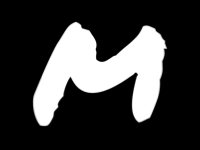I Don't Know – Humility and predicting
Credit: Asa Mathat — AllThingsD.com
Earlier in my product career I interviewed with Google for a product manager role — I didn't get it. One of the questions they asked was: "How would you evolve the Apple Photos app?" I was dreading this "how would you improve Product X" question. It’s impossible to answer well on the spot. If you asked the actual Product Manager for Apple Photos you could expect a thoughtful, considered answer, because they’ve had the time and context to think and consider it. But ask an interviewee who’s had neither and who know what you’ll get. I don't remember my answer, but I remember it wasn't great.
Whether that cost me the job I’ll never know, but I walked away thinking I should've had a better answer. Recently though, I changed my mind on that self-critique. I heard Bill Gates and Steve Jobs both answer a similar “predict the future” question.
From the D5 conference in 2007, the question:
"What are the core functions of the device formerly known as the cellphone… five years out."
Bill Gates' answer:
How quickly all these things that have been somewhat specialized — the navigation device, the digital wallet, the phone, the camera, the video camera — all come together, it's hard to chart out. But eventually you'll be able to pick something that has the capability to do every one of those things. And yet given the small size, you still won't want to edit your homework or edit a movie on the screen of that size.
Steve Jobs' answer:
I don't know. And the reason I don't know is because I wouldn't have thought that there would have been maps on it five years ago. But something comes along, gets really popular, people love it, get used to it, you want it on there. So people are inventing things constantly. And I think the art of it is balancing what's on there and what's not on there — it's the editing function.
📺 To watch the video version, go to 48m26s where the question starts.
Bill Gates’ answer was clear and satisfying, rooted in his belief of where the world was going. Steve Jobs’ was unsatisfying. Outside of acknowledging that smart phones would be a big deal, he offered no specifics. He only knew the skill would be in paying attention and making decisions when the time came, and this is the key point. He knew there was no way to know.
Bill Gates believed smartphones would be a big thing too, but his associated belief in desktop computers made him blind to other possibilities, causing him to miss the market of billions of people who would never need anything more than a pocket computer.
"It's not what you don't know that kills you, it's what you know for sure, that ain't true." — Mark Twain
We put a high value on people who predict the future with confidence but true visionaries (aka. those who are right over and over again) don't predict the future, they pay attention to the present and make sure they are setup to react.
I sometimes wonder about the person who got that Google job instead of me. I wonder what brilliant ideas they had about the future of Apple Photos. Or if they just said "I don't know" which is what I’d say today if I had another chance.

